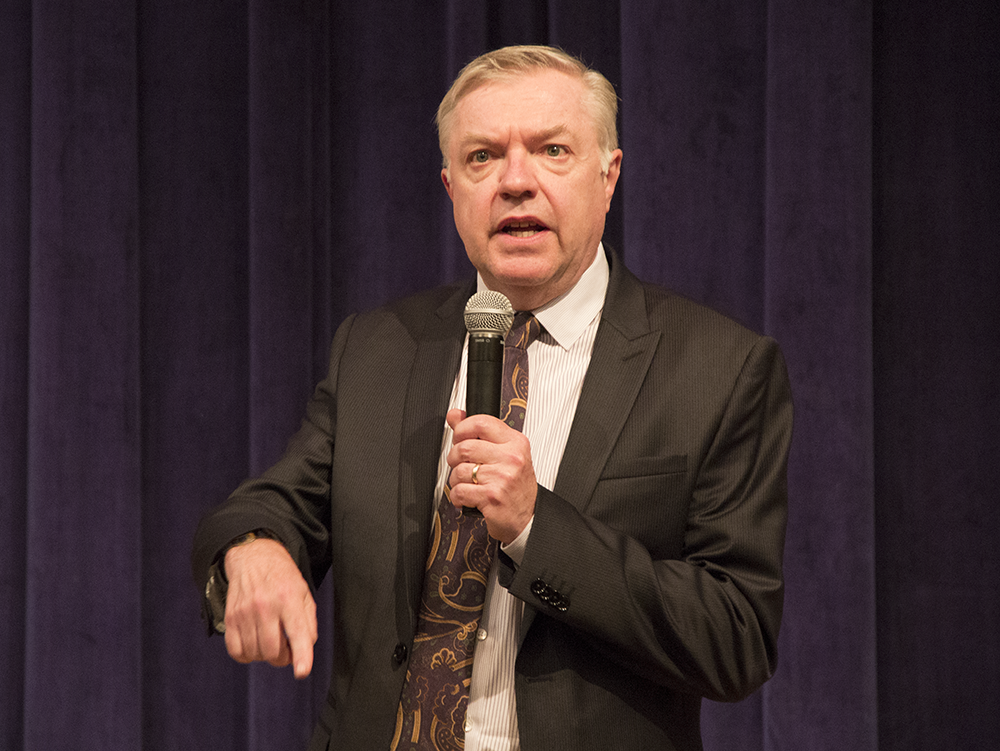
Senior fellow at the Hudson Institute and former professor Arthur Herman spoke about his latest book on the history of Western civilization and its shifting values in the Intercultural Center on Tuesday.
Hudson Institute senior fellow and former Georgetown professor Arthur Herman discussed shifting values in the Western world at an event in the Intercultural Center on Tuesday evening.
The event, which was titled “The Western Experiment,” was sponsored by the Tocqueville Forum for Political Understanding and focused on ideas from Herman’s latest book on the history of Western civilization, “The Cave and the Light.”
Best known for his New York Times bestselling book, “How the Scots Invented the Modern World,” Herman previously taught at Sewanee: The University of the South, George Mason University, Catholic University and Georgetown before beginning work at the Hudson Institute, a conservative think-tank in Washington, D.C. Herman is also a contributor to The Wall Street Journal.
In his speech, Herman praised Western civilization as a successful experiment, in which proper governance has led to wealth accumulation throughout all social classes.
“To think of Western civilization in some ways as an experiment … Western civilization has evolved as the most materially rich of all civilizations,” Herman said. “Rich not just at the top but permeating down through society even to the lowest rungs of society.”
Herman discussed the historical importance of democracy in the foundations of Western countries such as the United States.
“[American democracy] is an experiment. It is an unusual turn in the course of human history and societies that you and I and everyone can have a role in the making of major political decisions. But also that the role of government itself … remains highly limited,” Herman said.
Herman also said that diversity is a key element in Western societies.
“In the Western tradition, we end up with a host of different books and a range of different religions … even the rejection of religion and the humanistic strain that emerges from that,” Herman said.
Herman then identified the key difference between the West and the rest of the world as rooted in the ideas of Plato and Aristotle.
“What I want to suggest to you is that if you look at the course of Western history, from ancient Greeks on, what you see is these two great figures having enormous influence,” Herman said.
The talk concluded with a question-and-answer session.
Annee Lyons (COL ’18) attended the event because she is interested in ancient philosophical thought.
“As a classics major, I love discussions of the modern relevance of ancient thought,” Lyons said.
Ellen Singer (COL ’18) applauded how Herman linked Western culture to Platonic and Aristotelian thought.
“I thought he offered a compelling narrative, that progress comes from a dynamic exchange between Platonic truth-seeking and Aristotelian practicality,” Singer said.
However, Singer disagreed with Herman’s focus on Western tradition and questioned his assumptions of Western dynamism.
“I think his claim that this is a Western phenomenon is unfounded,” Singer said. “He failed to prove that similar philosophical tension did not drive progress in any other civilization, and his argument was laced with ethnocentric patronization of non-Western tradition.”














